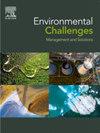保质期标签知识和减少食物浪费:对政策建议的综合和批判性评价
Q2 Environmental Science
引用次数: 0
摘要
过期日期标签是基本的政策工具;然而,这些标签上的信息经常被误解,导致原本可食用的食物被丢弃。对保质期标签的混淆导致了不必要的食物浪费,并增加了对自然资源的压力。本研究回顾了消费者对过期日期标签的理解,并综合了政策建议。我们发现消费者经常对有效期标签感到困惑,他们的解释受到上下文因素的影响。对过期日期标签的认识和理解差异较大,而政策建议的范围相对狭窄,表明政策空间有限。消费者教育和宣传运动是最常见的政策建议之一,尽管它们在改变消费者行为方面效率不大。规范保质期标签,改变保质期标签的外观,可以提高信息传递的效率;但是,必须考虑到不同产品的个体风险感知。但是,政策建议的范围有限会严重妨碍资源管理政策的有效性。因此,在设计针对特定产品和区域的政策应对措施时,了解现实生活中的消费者习惯和废物行为对于加强可持续发展工作至关重要。最后,我们提出了一个简化的政策干预框架。本文章由计算机程序翻译,如有差异,请以英文原文为准。
Expiration date label knowledge and food waste reduction: a synthesis and critical evaluation of policy recommendations
Expiration date labels are fundamental policy tools; however, the information presented on these labels is often misinterpreted, resulting in the discarding of otherwise edible food. The confusion surrounding expiration date labels leads to unnecessary food waste and increases the pressure on natural resources. This research reviewed consumer understanding of expiration date labels and synthesized the policy recommendations. We found that consumers frequently experienced confusion about expiration date labels, and their interpretation was affected by contextual factors. Knowledge and understanding of expiration date labels varied considerably, while the range of policy proposals was relatively narrow, suggesting a restricted policy space. Consumer education and information campaigns were among the most common policy recommendations, despite their modest efficiency in altering consumer behavior. Standardizing expiration date labels and altering their physical appearance may enhance the efficiency of information transfer; however, the individual risk perception of different products must be taken into account. However, the limited scope of policy proposals can significantly hinder the effectiveness of resource management policies. Therefore, understanding real-life consumer habits and waste behavior when designing product- and region-specific policy responses is essential for enhancing sustainability efforts. Finally, we propose a simplified framework for possible policy interventions.
求助全文
通过发布文献求助,成功后即可免费获取论文全文。
去求助
来源期刊

Environmental Challenges
Environmental Science-Environmental Engineering
CiteScore
8.00
自引率
0.00%
发文量
249
审稿时长
8 weeks
 求助内容:
求助内容: 应助结果提醒方式:
应助结果提醒方式:


